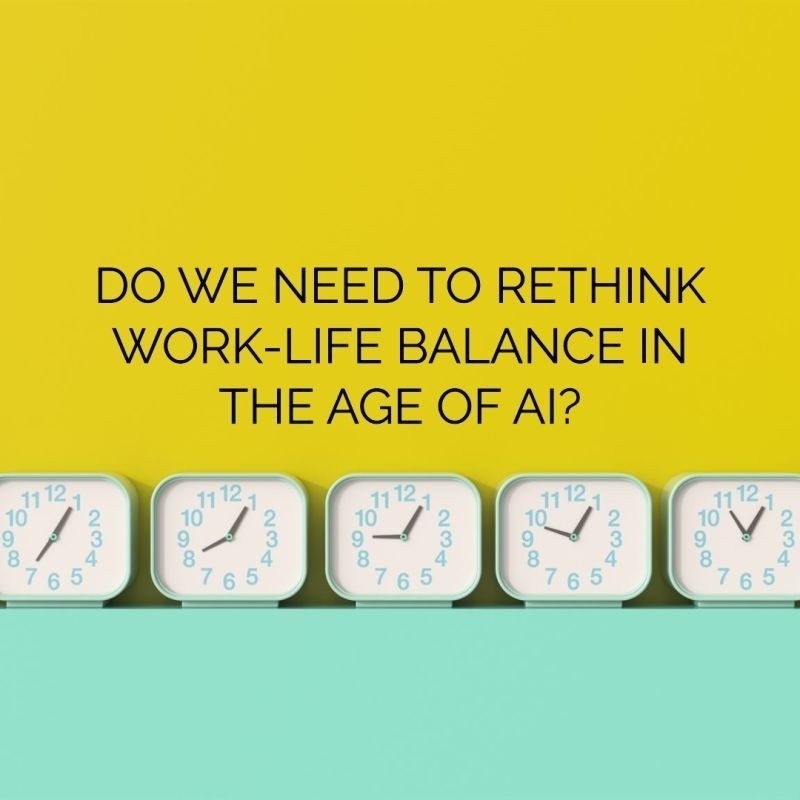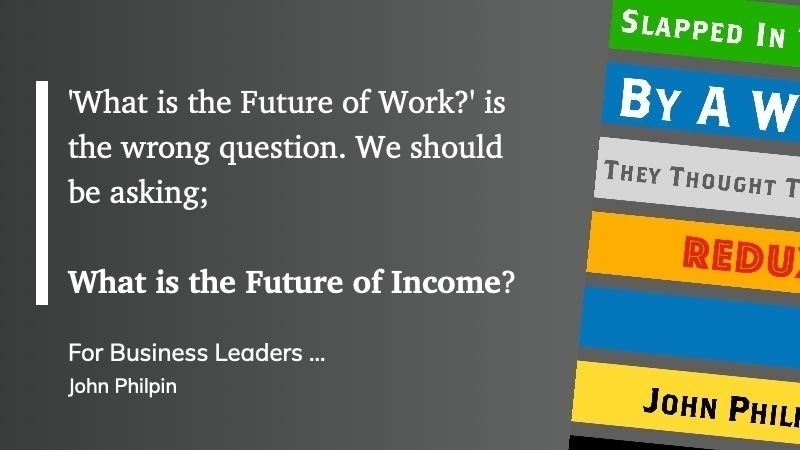Over on LinkedIN, 🔗 Richard Foster-Fletcher - founder of 🔗 MKAI asks

The full piece is here
I started to reply and of course LinkedIN gave me its usual ‘too long’ message … hence the post. (Those that follow me, might recognize some of the arguments.)
My Response
Yes we do need to rethink work-life balance … and we should start by scrapping the concept entirely. I doubt Ed Sheeran (to pick a random name) worries about his work-life balance? Or anybody who is doing what they love and getting paid to do it for that matter.
The problem is that for most people ‘work’ is not a passion, or love … it is the means to an end of building income that then allows them to follow their passion. Remember ‘hobbies’? Remember ‘holidays’? Remember retirement? … all constructs that allow people to take a break from ‘the machine’ and do what they really want to do.
Work-Life balance is one of those. It is only needed in a world where the work part is not your dream, passion, love …. So bring on the AIs and let them pick up the drudgery of our work lives. Let people move on to thinking and doing things that they consider meaningful and love and have a passion for.
Of course, this Utopia is destined to fail, without significant changes in the social fabric of society.
Take a look at what most musicians, artists, writers (insert the thing you really love and want to do) actually earn and quickly realise that they don’t make a living, much less a good one. Now imagine doubling or trebling the number of people trying to earn a living in that way .. and ask yourself if X million people currently struggle to make a living, how 2X or 3X are going to do that?
Bonus question. When will corporations stop thinking of customers and staff as two distinct ‘audiences’, and realize that they are all connected, starting with the fact that they are all people. As more companies shed people from their books through automation, outsourcing, off shoring and now (apparently) AI, they get to produce more and more things for customers to buy at less and less cost. Thats the ‘maximizing shareholder value’ bit.
Last time I looked, the buying power of the robot market was non existent - primarily because they don’t get paid for the work they do. As ‘the machine’ replaces more and more people by ‘machines’, there will be less and less people earning income to buy the stuff that the corporations are producing, it doesn’t matter how good their product is … nobody can buy it, even if they want to. Then what?
This is why asking what the future of work looks like is asking the wrong question.

BTW - Richard hosts an excellent salon under the umbrella of MKAI, hit me up if you would like to join - and I will connect some dots.